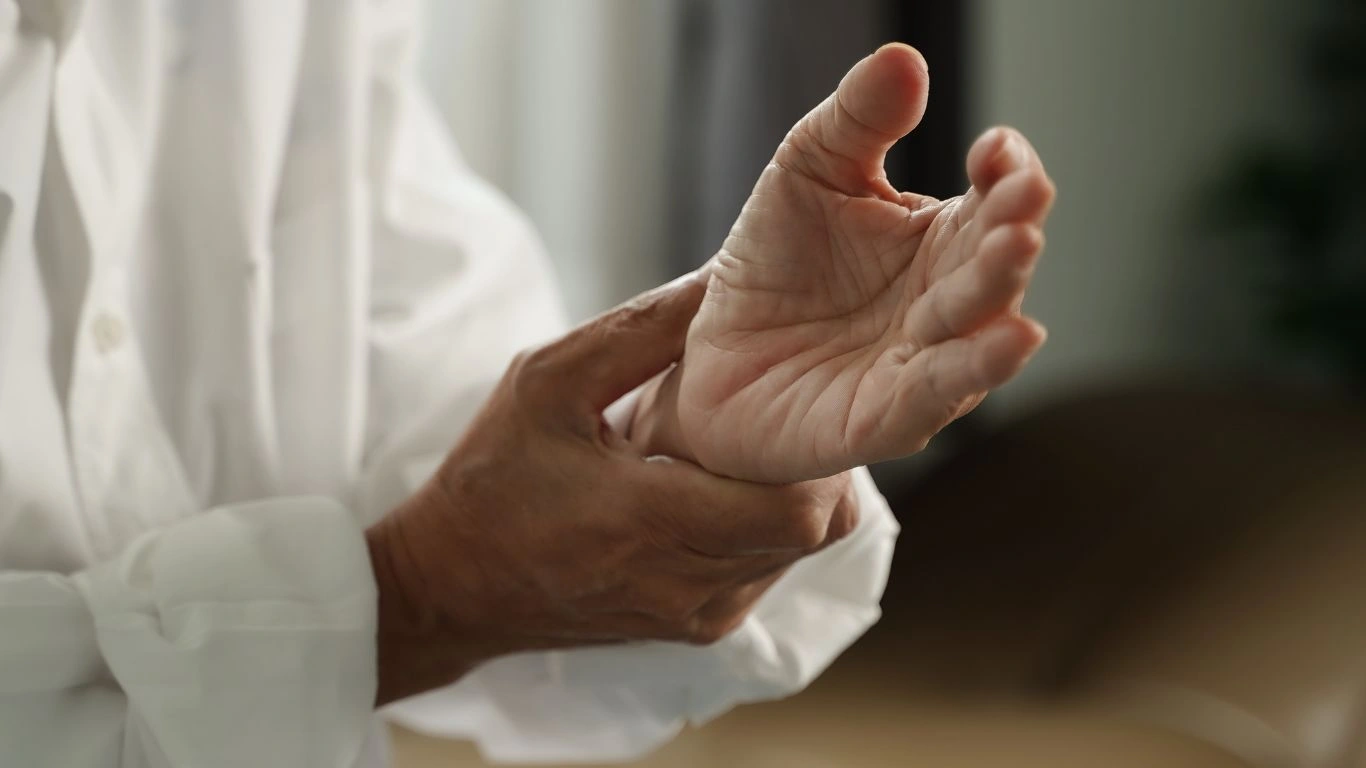Effective Strategies to Beat Rheumatoid Arthritis Work Fatigue
If you’ve ever tried to juggle a full workday while battling joint stiffness, brain fog, and relentless exhaustion, you already know this: rheumatoid arthritis and strategies for managing work fatigue are topics we seriously don’t talk about enough. As a Rheumatology nurse practitioner, I’ve seen far too many patients struggle in silence—pushing through meetings with a brave face, chugging coffee to survive the afternoon slump, only to crash before dinner. Sound familiar? You’re not alone, and more importantly—you’re not without options.
Understanding the “Work Fatigue” That Comes With RA

Let’s get something straight: this isn’t your typical end-of-day tired. The fatigue associated with RA is in a league of its own. I like to call it “body battery drain”—where you wake up tired, move through molasses all day, and can’t find your energy reserve even if someone paid you. This type of fatigue goes beyond just being sleepy. It’s the kind that weighs down your limbs, clouds your thoughts, and makes everyday tasks feel like hiking a mountain.
Why RA Fatigue Hits So Hard at Work
Most of us spend at least 8 hours a day working—sitting, typing, Zooming, moving, or standing, depending on the job. RA doesn’t clock out during that time. In fact, stress, long hours, and constant multitasking often amplify symptoms. Here’s what I see most often with my patients (and sometimes, honestly, with myself on rough days):
- Energy crashes by mid-morning or mid-afternoon, even with good sleep.
- Brain fog during meetings or while reading reports.
- Stiffness and pain from sitting too long or repetitive motions.
- Mood dips—frustration, irritability, even guilt for not performing at “100%.”
This isn’t about being lazy or unmotivated. It’s the inflammatory process working overtime in your body. RA flares are like surprise pop quizzes your body throws at you—and they don’t care if you’ve got deadlines or team huddles.
Simple Strategies for Managing RA Fatigue on the Job

1. Get Real About Your Limits
This one took me a while to learn. As a nurse practitioner, I’m used to being “on” all the time. But RA taught me that powering through doesn’t make you strong—it makes you crash. Know when to say no, when to pause, and when to delegate. Setting healthy boundaries is one of the most powerful strategies for managing work fatigue with rheumatoid arthritis.
2. Rethink Your Work Setup
Is your desk setup working for you—or against you? Small changes can make a huge difference. Ergonomic chairs, a wrist-friendly keyboard, even a standing desk can help reduce joint stress. I once recommended a vertical mouse to a patient, and within a week, she told me it changed her entire workday experience.
3. Use the “Energy Budget” Approach
I often tell my patients to treat their energy like money in a bank account. You only get so many “energy dollars” per day—spend them wisely. Prioritize tasks that truly matter and let go of perfectionism (easier said than done, I know). If it’s not essential, it can wait or be shared.
Food, Movement, and Rest—Your Daily Arsenal

4. Snack Smart, Not Fast
I’m not here to give you a lecture on kale smoothies (unless you love those). But fueling your body with steady, anti-inflammatory foods throughout the day can prevent the dreaded energy dip. Think protein + fiber combos. My personal go-to? Almonds, a hard-boiled egg, and some berries—easy, portable, and actually satisfying.
5. Gentle Movement Wins
Don’t roll your eyes—I’m not telling you to hit the gym at lunch. But light stretching, even a quick walk around the office or gentle yoga, can loosen stiff joints and get your blood flowing. I keep a resistance band in my desk drawer, and yep, I’ve done stretches between patient charts more times than I can count.
6. Embrace the Power Nap (If You Can)
If your work culture allows it—or if you work remotely—consider a 15-minute rest during the day. You’d be surprised how much even a short break with your eyes closed can do. This isn’t laziness—it’s recovery. Just like we wouldn’t expect a sprinter to run nonstop, people with RA need structured recovery time, too.
How Communication at Work Can Ease RA Fatigue

7. Be Honest (But Strategic) About Your Needs
I know—talking to your boss or coworkers about your health can feel awkward. I’ve had patients stress for weeks over how to bring it up. But here’s the truth: silence doesn’t protect you, it just leaves you unsupported. You don’t need to share every detail of your diagnosis. A simple, “I’m managing a chronic condition that sometimes affects my energy levels and mobility. I may need a few adjustments to stay productive,” is often enough to open the door.
It’s all about setting the tone. You’re not asking for favors—you’re advocating for what helps you do your job better. And when framed like that, most employers are more supportive than you might expect.
8. Know Your Rights (and Resources)
Here’s something I wish more people knew: under the ADA (Americans with Disabilities Act), you’re entitled to reasonable accommodations. That could mean flexible hours, ergonomic equipment, or the ability to take short breaks during the day. Occupational health services or HR can help you put these in place. I’ve helped several patients write letters or prepare for those conversations—it’s okay to ask for backup if you’re not sure where to start.
The Role of Mindset in Managing Work Fatigue

9. Give Yourself Grace (Really)
This part isn’t just fluffy advice—it’s survival. I’ve watched people beat themselves up for “not doing enough” when their bodies are already battling a full-blown autoimmune war. There will be days when you can’t finish everything. There will be meetings where your brain checks out halfway through. And that’s okay. Chronic illness forces us to redefine productivity—and that’s not a bad thing.
One of my patients started writing “3 wins” at the end of each day, even if one of them was just “answered an email.” It shifted her whole perspective. Try it—it might surprise you how much you are accomplishing.
10. Stress is the Sneaky Fatigue Fuel
If there’s one pattern I’ve seen over and over in my practice, it’s this: stress = flare-up fuel. The more anxious and overworked you feel, the more your RA symptoms tend to spike. The tricky part? Work is often inherently stressful. But small tweaks can help lower the pressure:
- Start your day with 5 minutes of deep breathing or quiet coffee time—before checking emails.
- Use a planner or app to chunk out tasks (overwhelm leads to inaction).
- Say “no” without a guilt sandwich attached.
- Protect your off-time. Like, really protect it. No “just one more email.”
Your nervous system needs calm. And when you give it that, your body often follows suit.
Support Systems: Why You Shouldn’t Go It Alone

11. Find Your RA Crew
Whether it’s an online forum, a local support group, or just a friend who “gets it,” connecting with others who live with RA can be incredibly validating. I’ve seen firsthand how powerful this can be. One of my long-time patients finally joined a local support circle after years of resisting—and now she says it’s her favorite part of the month. “I don’t have to explain myself,” she told me. “They just understand.”
That’s the thing. When people really understand your fatigue, your bad days, and your small victories, it makes all the difference. You’re not alone—and you don’t have to pretend to be fine when you’re not.
12. Let Your Healthcare Team Be Part of the Solution
Too often, patients only bring up fatigue during major flare-ups. But regular, open communication with your Rheumatology team (nurse practitioners like me included!) can make a big difference. We can help you tweak your medications, suggest lifestyle adjustments, or recommend therapies that support energy levels.
Don’t just “tough it out.” If your fatigue is worsening, say something. It could mean inflammation is poorly controlled, or that it’s time to adjust your treatment plan. You deserve to feel better—not just “barely functioning.”
Work-Life Rhythms, Not Balance

13. Ditch the Balance Myth
Work-life “balance” is kind of a myth, isn’t it? Especially when you’re managing a chronic condition. I prefer the idea of rhythms. Some weeks, you’ll need more rest. Others, you might feel like a rockstar and finally clean your inbox. The key is listening to your body and flowing with its needs, not forcing it into a strict routine it can’t sustain.
I plan my weeks around energy highs and lows. Mondays tend to be rough for me, so I schedule lighter patient loads then. Fridays? Surprisingly productive, so I save creative projects or paperwork for those. You can do the same—tweak your workflow to match your RA rhythm.
Technology and Tools to Help Manage RA Fatigue at Work

14. Leverage Apps and Devices
Technology isn’t just for staying connected or binge-watching your favorite shows—it can actually be a lifesaver for managing rheumatoid arthritis fatigue during work. I often recommend apps that help track symptoms, remind you to take breaks, or even guide you through short meditation sessions. For example, apps like MyRA and Calm have helped some of my patients stay more in tune with their bodies and reduce stress-related fatigue.
Don’t underestimate the power of simple timers, too. Setting a reminder to stand up, stretch, or even drink water can be a game-changer for those draining hours behind a desk.
15. Adaptive Tools Make Daily Tasks Easier
From voice-to-text software to ergonomic keyboards and mouse alternatives, assistive tools help reduce strain and conserve energy. One of my favorite tips to patients is to explore what tools make their specific work tasks easier—whether that’s a speech recognition program or an adjustable monitor stand.
These small adjustments may seem minor, but they can seriously cut down the physical and mental fatigue that piles up by day’s end.
When to Seek Professional Help for Work Fatigue

16. Recognizing When Fatigue is a Warning Sign
Not all fatigue is created equal. Sometimes, worsening tiredness can signal that your rheumatoid arthritis isn’t as well-controlled as it should be. If you’re noticing new or escalating fatigue, accompanied by increased joint pain, swelling, or other symptoms, it’s time to reach out to your healthcare provider.
Don’t brush it off as “just part of RA.” As a nurse practitioner, I’ve seen how timely medication adjustments, physical therapy referrals, or even simple lifestyle tweaks can help bring energy levels back up. Your healthcare team is there to partner with you, so don’t hesitate to check in regularly.
17. Mental Health Matters
Fatigue and mood go hand in hand. Living with chronic pain and exhaustion can lead to depression or anxiety, which, in turn, worsen fatigue. If you find yourself feeling overwhelmed or hopeless, seek professional mental health support. Therapy, counseling, or even support groups focused on chronic illness can provide vital tools to cope and boost your resilience.
I encourage my patients to think of their care as holistic—treating body and mind together leads to better overall outcomes.
Final Tips From a Rheumatology Nurse Practitioner
- Track your patterns. Keep a simple journal of your energy highs and lows, symptoms, and what helps or hurts. This info is gold for you and your healthcare team.
- Build small rituals. Whether it’s a 5-minute morning stretch or a gratitude note at day’s end, small habits build resilience.
- Celebrate progress. RA fatigue management is a marathon, not a sprint. Celebrate the small wins—they add up.
- Stay curious. Science and treatment options evolve. Stay connected to trusted sources and your care team to explore new possibilities.
Having walked alongside hundreds of people with rheumatoid arthritis, I can tell you this: managing work fatigue is absolutely possible. It takes a mix of practical strategies, honest communication, and kindness to yourself. You’re more capable than you realize—and you don’t have to face this challenge alone.
References
Disclaimer
This article is intended for informational purposes only and does not replace professional medical advice. Always consult your healthcare provider for personalized guidance regarding your health condition and treatment options.

Tarra Nugroho is a dedicated Nurse Practitioner with a strong foundation in family and preventive care. She brings both compassion and clinical expertise to her practice, focusing on patient-centered care and health education. As a contributor to Healthusias.com, Tarra translates medical knowledge into clear, empowering articles on topics like women’s health, chronic disease management, and lifestyle medicine. Her mission is simple: help people feel seen, heard, and informed—both in the clinic and through the content she creates. When she’s not caring for patients, Tarra enjoys weekend hikes, plant-based cooking, and curling up with a good health podcast.







